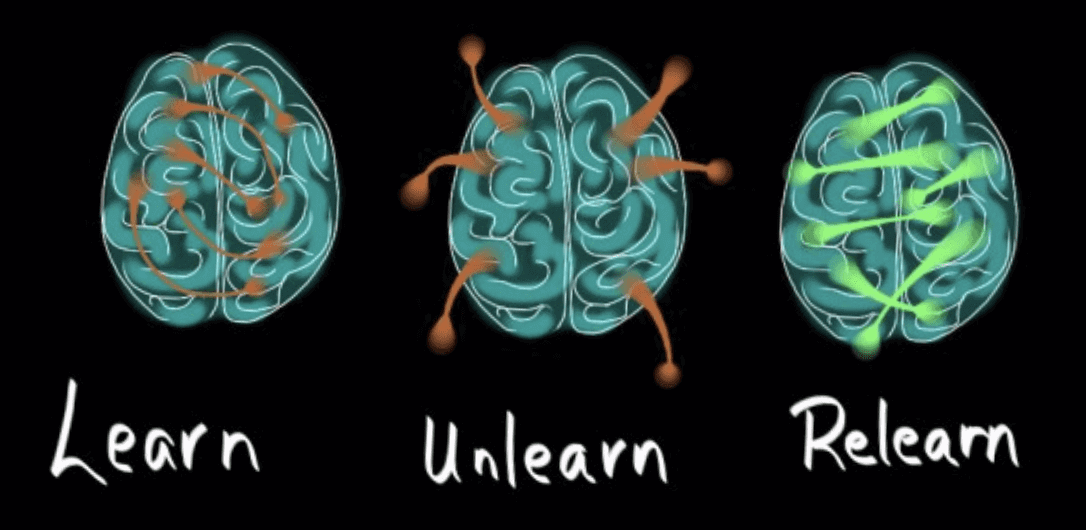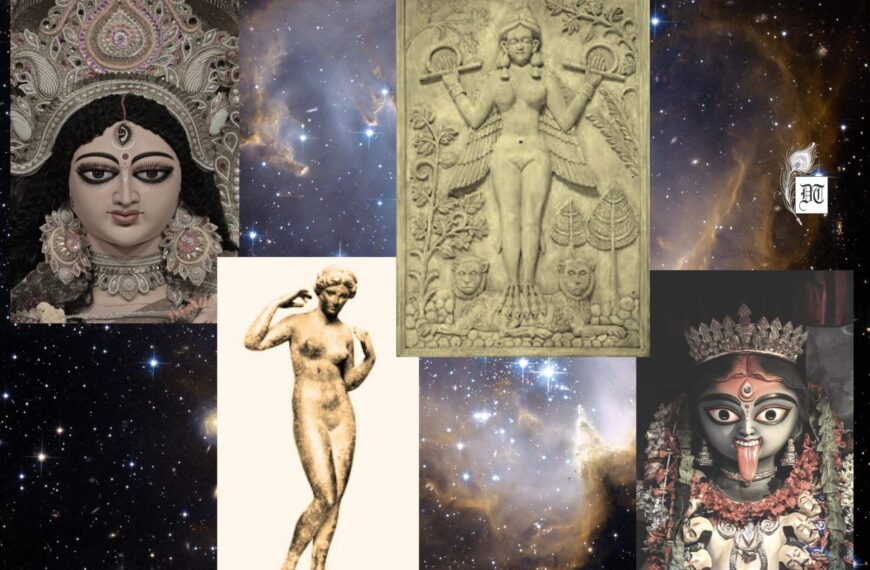Enakshi tells us the importance of unleraning alonwith learning. An exclusive for Different Truths.
 When we are born, our mind is like an empty sieve. Every occasion, every moment, every circumstance and every person we come in contact with leaves an impact or memory in our mind. The memories that we hold important, whether happy or sad, good or bad, stay back on the sieve and the rest of the events filter out. With time, the pores of the sieve get clogged. Hence, it is imperative to let go of some of the memories, at least the ones that are hurtful or the ones that forbid us from moving on. That’s where the process of unlearning comes in.
When we are born, our mind is like an empty sieve. Every occasion, every moment, every circumstance and every person we come in contact with leaves an impact or memory in our mind. The memories that we hold important, whether happy or sad, good or bad, stay back on the sieve and the rest of the events filter out. With time, the pores of the sieve get clogged. Hence, it is imperative to let go of some of the memories, at least the ones that are hurtful or the ones that forbid us from moving on. That’s where the process of unlearning comes in.
Just how learning is the procurement of knowledge, unlearning is the process of discarding a piece of information from the mind once we realise that it is no longer useful. At every step of life, we are offered with choices. Just like how we have an option to accommodate and compromise or stand tall and dispute, we also have an option to learn or unlearn. I understood this term when I started teaching.
Just like how we have an option to accommodate and compromise or stand tall and dispute, we also have an option to learn or unlearn. I understood this term when I started teaching.
When I was in school, 10 years back, I always thought about why the teachers never gave us any chance to question them or to ask our doubts without the fear of getting rebuked. Gradually, my mind got trained for the traditional method of education. After passing my college, I applied for the post of a teacher here in Bengaluru. Everything seemed pretty easy at first. But the real shocker was when I entered one of the classrooms for the demo! The seating arrangement left me rooted to the spot. Unlike the traditional set up of sitting in pairs, the students were sitting in fours. It looked as if several round table conferences were happening simultaneously in the classroom. For a moment, I felt as if I had forgotten all that I had prepared for the lecture.
Our mind is like a labyrinth. You can only find a way out if you keep your calm and be patient. I confirmed with the principal if the teaching methodology was different. She explained about how student engagement was the prime focus of education now. I said out loud in my mind that I had to try. And I began the lecture. I could easily engage students in a discussion. Partly, the ease was because of the subject I was teaching- English. And partly it was the effect of the reassurance by the principal. But soon enough I realised that I was stuck. I did not know where to look and teach. Children seem scattered and hence, it became all the more difficult to distribute my attention.
Getting the traditional setup out of my mind, which had been an elementary part of my existence for 14 years, was not easy. In fact, getting used to the new system of education was just the tip of the iceberg, for Bengaluru had a lot in store for me.
Nevertheless, the class went on well. I will not say that it was easy because it  wasn’t. Getting the traditional setup out of my mind, which had been an elementary part of my existence for 14 years, was not easy. In fact, getting used to the new system of education was just the tip of the iceberg, for Bengaluru had a lot in store for me. Life was not going to be easy. I had shifted to Bengaluru immediately after my marriage. What my married life had in store, I had no clue. But the only way I could conquer all the adversities was by unlearning what I had already learnt.
wasn’t. Getting the traditional setup out of my mind, which had been an elementary part of my existence for 14 years, was not easy. In fact, getting used to the new system of education was just the tip of the iceberg, for Bengaluru had a lot in store for me. Life was not going to be easy. I had shifted to Bengaluru immediately after my marriage. What my married life had in store, I had no clue. But the only way I could conquer all the adversities was by unlearning what I had already learnt.
Unlearning and then learning again has a lot of benefits. It helps you keep your sieve pores vacant so that new information or ideas can occupy the place. Leading a life with wisdom by your side can give you contentment. Leading a life with intelligence alone can only give you interim happiness. I learnt this subtle art very quickly. But not all of us are quick learners. Therefore, it is important to reflect on how things are working out in our lives. Often unlearning certain habits or notions helps in combating the toughest of battles.
Photo from the Internet





 By
By
 By
By
 By
By
 By
By